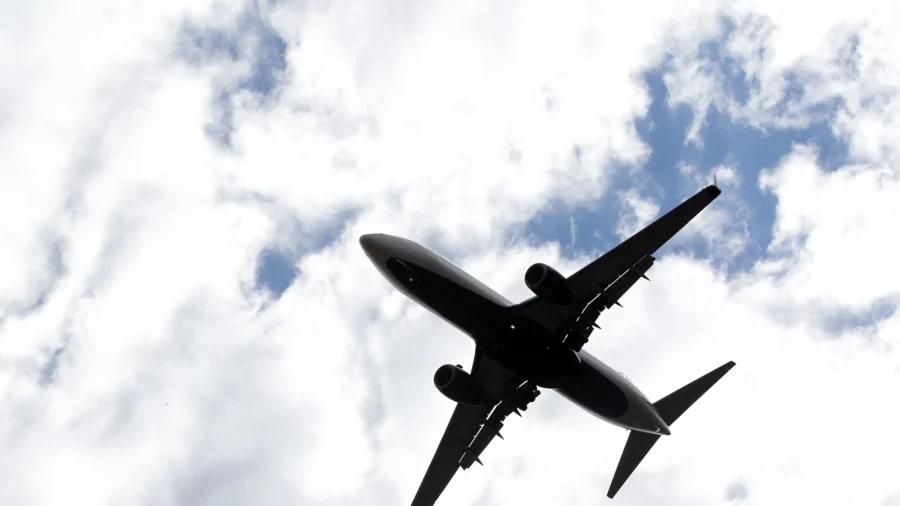Living near airports could be more harmful to one’s health than previously thought, potentially leading to heart issues, according to a new study led by researchers at University College London (UCL) and announced this week in a press release.
The research, published in the Journal of the American College of Cardiology, suggests that high levels of aircraft noise could potentially lead to serious cardiovascular issues.
The study examined detailed heart imaging data from 3,635 individuals living near four major English airports. Researchers compared the cardiac structures of those living in areas with higher aircraft noise to those in quieter zones.
Findings revealed that those exposed to higher aircraft noise had stiffer and thicker heart muscles, affecting the contraction and expansion of these muscles and the heart’s efficiency in pumping blood throughout the body.
Dr. Gaby Captur, senior author of the study and consultant cardiologist at the Royal Free Hospital in London, said that the findings are observational, but point to a connection between aircraft noise and health effects.
“Our findings add to a growing body of evidence that aircraft noise can adversely affect heart health and our health more generally,” Captur said.
The impact was worse for those exposed to higher levels of aircraft noise at night. Researchers said this could result from disrupted sleep patterns and an increased likelihood of being at home during these hours, resulting in more exposure to the noise.
Such heart abnormalities could potentially multiply the risk of a major cardiac event by two to four times compared to those without such abnormalities. This includes the risk of heart attacks, life-threatening heart rhythms, and strokes.
Professor Anna Hansell from the University of Leicester said she was particularly concerned with night-time noise.
“We are concerned that the type of abnormalities we saw with night-time aircraft noise might result in increased risk of heart problems and stroke,” she said. She emphasized the importance of maintaining a healthy diet, staying physically active, and managing conditions like high blood pressure and diabetes, to improve heart health.
The study suggests that aircraft noise may trigger stress responses, leading to an over-activation of the sympathetic nervous system, which controls our “fight or flight” response.
This can result in elevated blood pressure, the constriction or dilation of arteries, and slower digestion. It may also cause the release of cortisol, the stress hormone, which could lead to an increased appetite, causing weight gain.
Due to its intermittent nature and unpredictability, aircraft noise may be more disruptive than road or rail noise, the researchers said. Previous studies have already established links between aircraft noise and increased blood pressure and obesity.
According to Dr. Cristian Topriceanu, the study’s first author, the connection between aircraft noise and heart abnormalities could be attributed to higher body mass index (BMI) and blood pressure among those exposed to higher levels of noise.
The study defined higher aircraft noise as over 50 decibels on average during the day and 45 decibels at night, exceeding the World Health Organization’s recommended limit of 45 decibels. Among those studied, 8 percent lived in areas with high daytime aircraft noise, while 3 percent lived near high nighttime noise levels.
The research accounted for various factors that could have influenced the results, including age, sex, BMI, socioeconomic status, lifestyle factors like smoking or exercise, and exposure to other forms of noise and air pollution.
Findings suggest that those who remained in high aircraft noise areas showed approximately 10 to 20 percent worse heart structure and function compared to those who moved away from those areas.
Professor James Leiper, Associate Medical Director at the British Heart Foundation, said the results affirmed previous findings but more research is needed.
“While observational studies like this can’t prove cause and effect, these findings add to previous research showing the damaging impact of noise pollution on our heart health. Further research will be needed to investigate the longer-term effects of aircraft noise on the health of those with the highest exposure,” he said.

